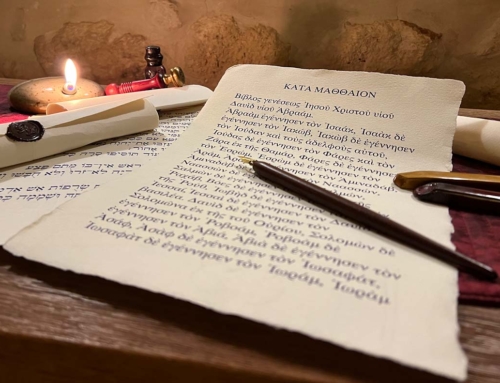What is remarkable about the past history of this place where the Lord has planted us? For us, the first significant date is 1136, the year the city of Chemnitz was born, with the foundation of a Benedictine monastery. Throughout its history, it has been shaped by key moments and events, all of which left an indelible mark on the city’s development. It is worth remembering some of these, in order to understand the current situation which touches upon our presence in this place. The Reformation began in 1517, which led to the region of Saxony becoming an evangelical Lutheran denomination. So, Lutheranism became the official religion of the region which consequently led to the banishment of the monks attached to the monastery and the expulsion of Catholics from the city.
Another important moment took place in 1799. We find ourselves in the epoch of industrialisation and the city of Chemnitz reaches the apex of its splendour, to the point of it being called Manchester of Saxony (Manchester is a major industrial city in England). An important change in the city is linked to this moment in history. Chemnitz needed workers and these arrived predominantly from Italy. Being Catholics, their arrival led to the return of the Catholic Church in the city. In the years preceding the Second World War, Chemnitz was one of the most important cities in Germany: we just think that in 1930 the city was flourishing in all areas of life, and had 361,000 inhabitants. Unfortunately this splendour came to an end on the night of 5 March 1945 when Chemnitz was razed to the ground by the Allied Forces. A new painful period began with the end of the war, a period characterised by the attempt to cancel the city’s history and replace it with another ideology: communism, and the atheism to which it is so closely bound. On 10 May 1953, in order to promote this new identity the name of the city was changed: the city was no longer Chemnitz, but Karl-Marx-Stadt (Karl Marx City), reflecting on it being a city of workers. This new model led the people to live in a state of profound interior desolation, disorientation, and mistrust. Even though it has been 35 years from the fall of the Berlin Wall on 9 November 1989. While this brought with it a new beginning for democracy, we still continue to experience a city marked by fracture and division, and of diffidence and mistrust. Today 30% of the population of Chemnitz is Christian, belonging to different denominations, meaning the rest of the population are still waiting for new life in Christ.
So, this specific city, suffering from its profound interior wounds, is where the Lord guided Koinonia John the Baptist in 2014, to prepare the way for a new people transformed by the Good News. Ours is a ‘meticulous job’, in which we have to act with great prudence. Realising that we are still walking on still very impervious land is a common occurrence. We have to try to patiently build relationships of trust and friendship. In doing this, we help this people to slowly open themselves up to the Lord. In this pastoral work, a very important for us is committed ecumenism, which helps Christians from different denominations to reciprocally encourage each other and to be a sign of unity and hope.
What can we say after ten years of presence here? We haven’t yet seen the multitudes, but we can see the first fruits: we’ve celebrated the first vocation to Virginity for the Kingdom of Heaven, with our sister Maria making her first commitments during the anniversary celebrations; a couple have become the first members of Koinonia in Chemnitz, having now perpetually committed to the Koinonia; the silver wedding anniversary of a couple in Hamburg. All of this is motive to celebrate the Lord’s faithfulness. In addition, seeing hearts opening: people asking us to pray for their needs, even though they themselves have no direct relationship with God, because often they are not even baptised. With our lives, we are here to point the way to Jesus, the Way, the Truth and the Life, the only one who can be the new and sure foundation for a new generation that already glimpses a future full of hope.
Irena Kaschura












